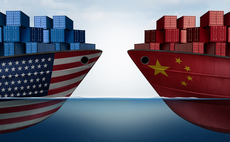No way the UK can mitigate the risks arising from a network that includes Huawei equipment, US security officials warn
Officials from the US National Security Agency have warned Prime Minister Boris Johnson that it would be "madness" to allow the use of Huawei networking equipment in the UK's 5G networks. In a n...
To continue reading this article...
Join Computing
- Unlimited access to real-time news, analysis and opinion from the technology industry
- Receive important and breaking news in our daily newsletter
- Be the first to hear about our events and awards programmes
- Join live member only interviews with IT leaders at the ‘IT Lounge’; your chance to ask your burning tech questions and have them answered
- Access to the Computing Delta hub providing market intelligence and research
- Receive our members-only newsletter with exclusive opinion pieces from senior IT Leaders





















